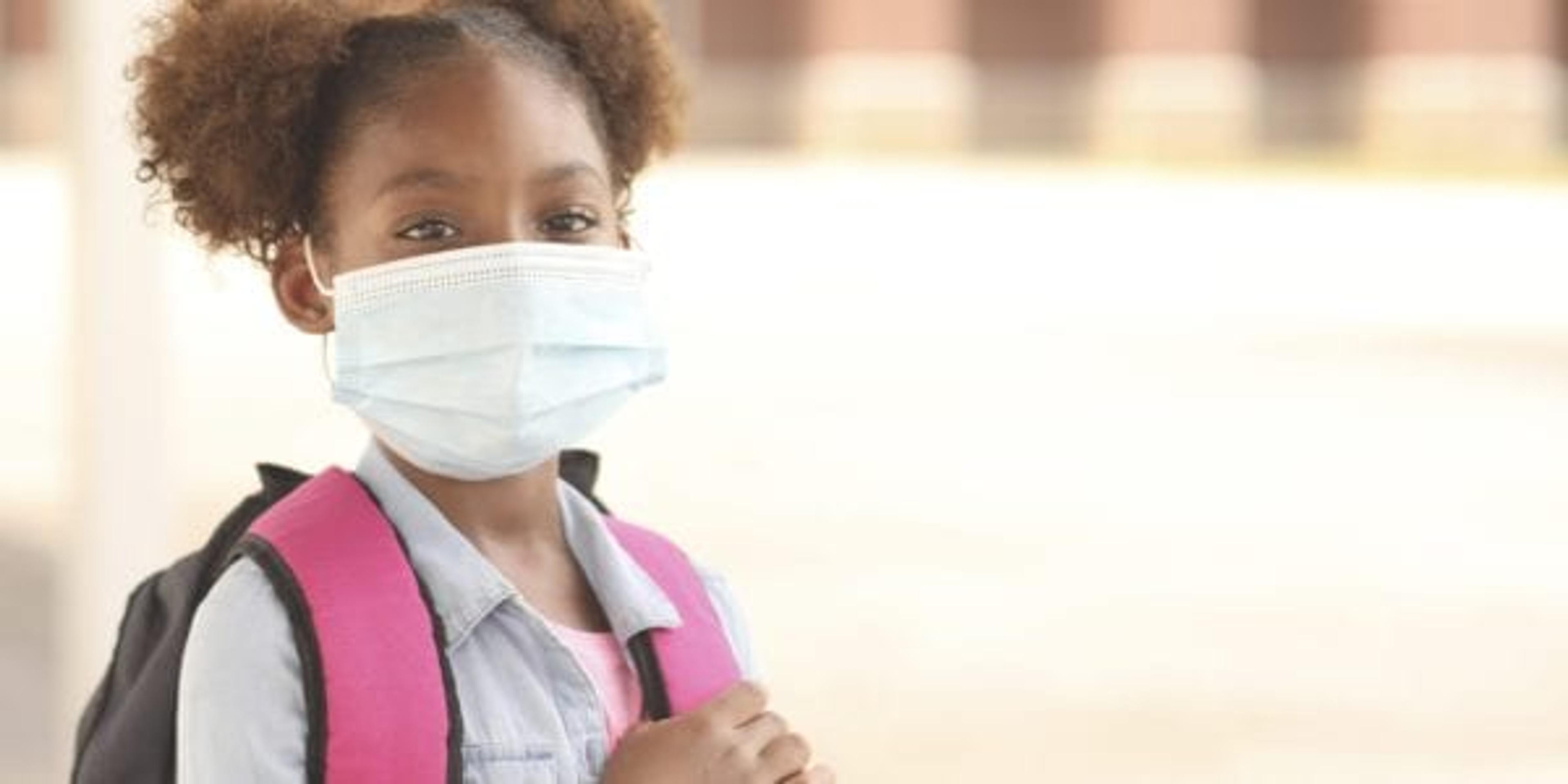Help Kids Protect Themselves Against COVID-19 at School

Julie Bitely
| 4 min read

Are your kids going back to school in-person this fall? Along with talking to them about good studying habits and why it’s important to pay attention in class, you’ll also want to make sure they understand the importance of doing everything they can to stop the spread of COVID-19.
Talking about the virus doesn’t have to be a scary topic of conversation. Providing age-appropriate guidance for your kids can empower them to make good decisions when it comes to their personal hygiene and interactions they have with teachers and fellow classmates.
Here are topics to cover before the first day of school so your kids know what they can do to keep themselves and others as safe as possible.
- Washing hands. Frequent hand washing is one of the most important ways to stop the spread of germs and disease. Set a good example for your children by washing your hands after using the bathroom, before eating and throughout the day. Practice with them to make sure they’re doing a good job and make it fun by singing songs that are at least 20 seconds long. Consider sending your child to school with their own personal hand sanitizer. Before school starts, help them to get in the habit of using it when washing hands with soap and water isn’t an option.
- Masks. Depending on your school’s plan and grade level, kids might be required to wear masks for some or most of their day. Help your kids get used to masks by wearing them at home, gradually building up the amount of time they keep them on. Kids, tweens and teens might be more excited to wear a mask they pick out, so if possible, let them decide on color and fabric. Model proper mask wearing behavior when you are out in public, so kids see that it’s important to you. Watch this video for more ideas on how to help kids embrace masks. [link to video Mike is working on]
- Personal space. The Centers for Disease Control and Prevention recommends keeping six feet of space between yourself and others as another way to inhibit the spread of the virus. Your child’s school will likely have measures in place to help kids stay as far apart as possible, so your role is really to reinforce with your children why it’s important for them to keep their distance the best they can. This video does a great job of helping kids visualize what six feet looks like.
- Personal belongings. Normally, parents encourage their kids to be caring, sharing individuals. While the caring part still applies, this year, you’re going to want to help your kids understand that it’s not a great idea to share their personal belongings. While experts believe the main way COVID-19 spreads is person-to-person, it is theoretically possible that a person could get COVID-19 by touching something with the virus on it and then touching his or her nose, mouth or eyes.
Before school starts, make sure your child is up to date on all recommended vaccines, including the flu shot. You’ll also want to establish a routine and plan for online learning in the event the virus spreads and schools revert to virtual education. Also be sure to check in with your child on how they are feeling. Read up on more ways to prepare your kids for the new school year here.
When school is back in session, it will be important to monitor your children for signs of illness every day. According to the CDC, children should not go to school with a temperature of 100.4 degrees or higher. You’ll also want to monitor for symptoms such as sore throat, cough, diarrhea, severe headache, vomiting or body aches. If your child has been in contact with a friend or family member with COVID-19, they should also stay home. Call your family doctor to determine the best course of action in any of these scenarios.
Want more back-to-school tips? Listen to this A Healthier Michigan Podcast featuring Dr. T. Jann Caison-Sorey, senior medical director, Senior Health Services, Emergent Holdings. Emergent Holdings is a separate entity contracted by Blue Cross Blue Shield of Michigan to perform administrative services for Blue Cross’ Medicare Advantage program.
Will your kids be in a classroom or learning from home this fall? How are you talking to your kids about going back to school? Share with us (and other parents) in the comments.
Related:
Photo credit: fstop123





